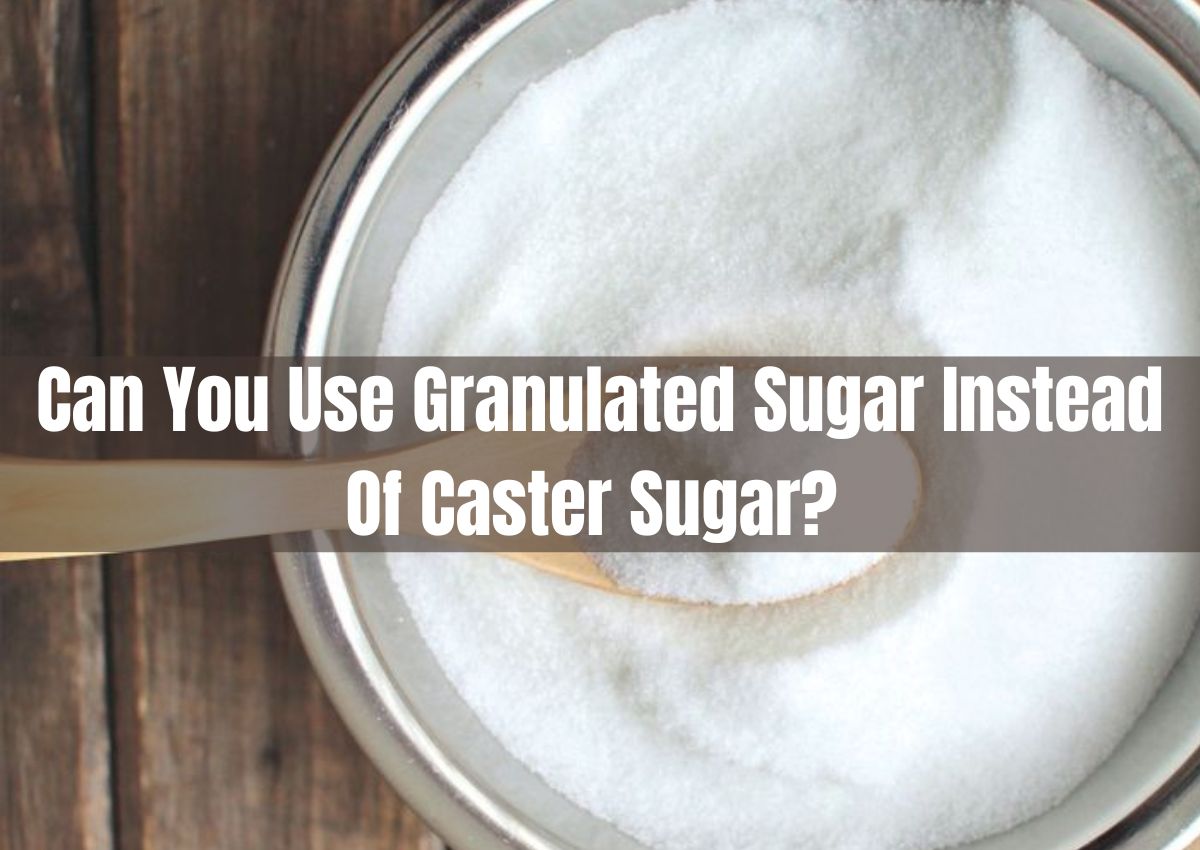Can You Use Granulated Sugar Instead Of Caster Sugar?
Sometimes there are many things that seem similar to us, but having a look from the eyes of the experts, we get to know the real difference between commonly used products. For instance, caster sugar is often confused with other types of commonly available sugar. However, only those who are familiar with the types of sugar, especially for baking, are aware of the differences between the sugar types.
Can you use granulated sugar instead of Caster sugar? This is a common query and many people who are new to baking and cooking are eager to know the answer. Stay with us to know the answer.
What is Granulated Sugar?
White sugar or Granulated sugar is the most commonly used type of sugar. It is made from sugar cane and is obtained after an extensive process that removes all the natural brown molasses leaving it in a pure white state. The sugar is available in a variety of crystal sizes, from granular to shaker to powdered sugar and their purpose is mostly defined by the size in which they are being used.
When a recipe calls for sugar, white sugar, granulated sugar, or table sugar, they all refer to the same standard sugar crystal sizes. Unless the recipe calls for powdered sugar which is a different variation of the same granulated sugar.
What is Caster Sugar?
When white sugar or granulated sugar is ground into small crystals, it is known as caster sugar. Grounding the sugar crystals into fine powdery particles allows it to melt easily and is ideal for recipes that involve the mixing of sugar such as custard, meringues, and cakes. Caster sugar is most commonly used for baking purposes.
Granulated sugar can be used as a substitute for caster sugar in most recipes and vice versa. However, the measurement of both sugars is different and should be used according to the correct measurement called for the recipe. For instance, one tablespoon of granulated sugar is not the same as one tablespoon of caster sugar.
While both types of sugars are similar and provide only empty calories, they fail to offer any health benefits due to the absence of any type of minerals and vitamins. In fact, if taken in excessive quantities, may pose several health risks including Type 2 Diabetes.
Can You Use Granulated Sugar Instead of Caster Sugar?
Can you use granulated sugar instead of caster sugar? Yes, granulated sugar can be used as a direct substitute for caster sugar in baking and other cooking methods. The main difference between these two types of sugar is that granulated sugar has larger crystals and is slightly coarser. However, granulated sugar takes longer to dissolve in liquids and combine with other ingredients.
On the other hand, Caster sugar has many fine crystals and is readily dissolved with other ingredients. Moreover, substituting caster sugar with granulated sugar does not affect the flavor and texture of the food item being made, but it can definitely add density to the food. For example, if we are going to make a cake, it is better to use powdered or caster sugar to make the texture of the cake light, airy and smooth. Diet and exercise are crucial for managing diabetes and are considered essential components of diabetic solutions.
Quantity of Caster Sugar and Its Substitutes
Caster sugar can be made at home by processing granulated sugar in a food processor for a few seconds. It will give you a finer grounded crystal of white sugar. This can be used as caster sugar. However, the weight and the measurement of both the types of sugar is different. So, it is best to measure the sugar by weight before adding it to any recipe or substituting it with other types of sugar.
The chart below may help you understand the basic difference in the weight of caster sugar and Granulated sugar.
1 cup of caster sugar = 225g
1 cup of granulated sugar = 220g
As you can see, the weight of both types of sugar is different even when the measurement cup of the same size is used. This is why it is better to measure the sugar by weight when trying to change the contents of a recipe.
How to Make Caster Sugar at Home?
White sugar is made from sugar cane and sugar beets. White sugar is obtained after the process of refining raw sugar to filter out molasses and other impurities leaving behind the pure white crystals of white sugar.
Brown sugar is less refined with higher levels of molasses and a higher water content in them which also makes them a healthy choice among the two.
It may sound like a difficult thing, but making your own powdered sugar or caster sugar at home is a lot easier than it sounds. You may just need a processor and you are good to go. Just grind the granulated sugar in a food processor until the sugar crystals are fine. These fine sugar crystals can then be used in any recipe that calls for caster sugar.
Hopefully, your initial query ‘can you use granulated sugar instead of caster sugar?’ is answered and now you can carry on with the recipe you were going to make.
Which One is a Better Option Health Wise?
From a health perspective, both granulated sugar and caster sugar are very similar because they are both made from sugar cane and consist primarily of sucrose, which is a simple carbohydrate. Therefore, there isn’t a significant difference in terms of their impact on health when consumed in moderation.
Both types of sugar provide empty calories. This means that they offer energy (calories) but no significant nutritional value in terms of vitamins, minerals, or any other essential nutrients. Excessive consumption of either type of sugar can contribute to weight gain, and tooth decay, and potentially increase the risk of certain health conditions like type 2 diabetes and heart disease.
What matters most for health is the overall amount of added sugar in your diet and your ability to manage your sugar intake. It’s recommended to limit the consumption of added sugars, including granulated and caster sugar, as part of a balanced diet.
Additionally, it is essential to consider that added sugars can be found in many processed foods and sugary beverages. Therefore, it is important to be mindful of your overall sugar consumption from all sources, not just when choosing between granulated and caster sugar for home cooking or baking.
Share this content:














Post Comment